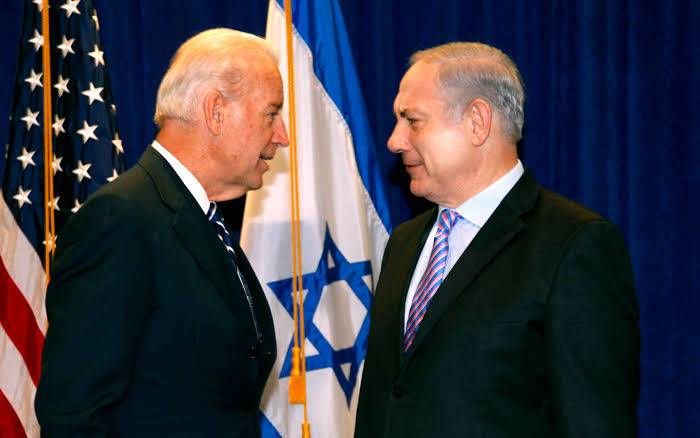US President Joe Biden takes unprecedented step in support of Israel
Shares

TEL AVIV/GAZA, (Reuters): On Wednesday, U.S. President Joe Biden is scheduled to make a significant visit to Israel in a show of support for Israel's actions against Hamas. This visit follows an announcement by Washington that Prime Minister Benjamin Netanyahu has agreed to allow humanitarian aid to reach the besieged population in Gaza.
Israel has committed to eradicating the Hamas movement, which controls Gaza. This decision came after a violent incident on October 7th in which Hamas gunmen killed 1,300 people, primarily civilians, during an attack on southern Israeli towns.
This was the deadliest single day in Israel's 75-year history. Israel has launched numerous air strikes on the Gaza Strip, resulting in the deaths of over 2,800 Palestinians, including approximately 25% children, and causing nearly half of Gaza's 2.3 million residents to be displaced from their homes.
The blockade imposed on Gaza has led to shortages of essential supplies, including food, fuel, and medical resources. A convoy of trucks carrying crucial supplies for Gaza was en route to the Rafah crossing in Egypt on Tuesday, which is the only access point to Gaza not controlled by Israel.
However, it remained uncertain whether these supplies would be allowed to enter. U.S. Secretary of State Antony Blinken announced President Biden's forthcoming visit after extensive discussions with Prime Minister Netanyahu. During these talks, Netanyahu agreed to work on a plan to deliver humanitarian aid to Gaza's civilians, although specific details were not provided.
During his visit, President Biden aims to learn what Israel requires for the defense of its people and how it plans to conduct its operations with a focus on minimizing civilian casualties and facilitating humanitarian assistance to Gaza's civilians without benefiting Hamas.
Furthermore, the U.S. is seeking support from Arab states to prevent a wider regional conflict, particularly in response to Iran's commitment to "preemptive action" through its allies in the "resistance front," which includes the Hezbollah movement in Lebanon. After visiting Israel, President Biden is expected to travel to Jordan for a meeting with King Abdullah and to meet with Egyptian President Abdel Fattah al-Sisi.
Additionally, he plans to meet with Mahmoud Abbas, the president of the Palestinian Authority, which holds limited self-rule in the Israeli-occupied West Bank but lost control of Gaza to Hamas in 2007.
The Palestinian Authority's Foreign Ministry has accused Israel of genocide and ethnic cleansing in Gaza, condemning the targeting of medical facilities, hospitals, journalists, and schools during air strikes.
